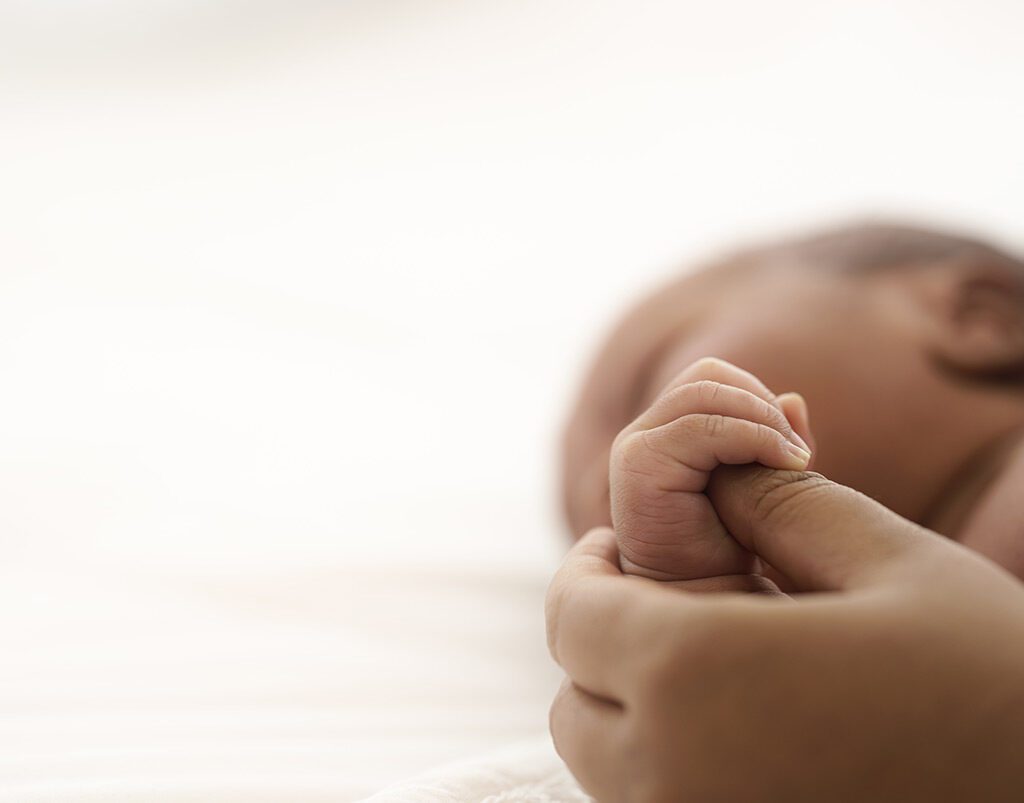Author: Emily Little, PhD
(Content considerations: police violence, murders, and racism)
Over the past several weeks since yet another killing of a Black man and loving father by police, the connection between this violence and perinatal equity has continued to come up. Some may even wonder “Why do we even bother with supporting healthy babies to come into this world, when they might just be shot down or murdered a few years later?” It’s true that the work can seem overwhelming and even pointless sometimes. Why advocate for equitable lactation access when the baby boy feeding at the parent’s breast may just end up in the preschool-to-prison pipeline shortly thereafter?
The answer, for me, is that these factors are connected and we’re fighting against the same thing in all of these cases, just in different contexts. The way that systemic racism shows up in policing can lead to horrific murders of people who were just walking or driving, or even secondary trauma from witnessing these actions. The way that systemic racism shows up in birth and perinatal care can lead to the death of birthing people who were supposed to be welcoming a new baby on a joyous occasion, or birth trauma that affects the parent-child relationship for years to come. In lactation support, systemic racism may show up as microaggressions and lack of culturally competent care that leads to a lactation journey ending sooner than desired. In home visiting, where “there are a lot of parameters that are put in place that come across as policing families as opposed to helping them” parents may be traumatized by having the trust violated by someone in their home who is supposed to be preventatively addressing any health or development concerns and supporting parents in nurturing a thriving baby. Jaye Madden-Wilson, LPN & CEO of Melinated Moms and a Black woman who has been in the role of receiving perinatal health services, being a home visiting nurse herself, and managing and advising home visiting systems, shared this week during our Racism in Home Visiting series: “we see very often that in communities of color, there will be more surveillance, more calls for Child Protection, more calls for different entities to come and investigate people. And while these things sometimes may be needed, too often there is a disconnect of family’s cultural needs, understanding the patient or a family’s spoken language in their home, and understanding that their traditions and their values all encompass who they are as a person.” The manifestations of systemic racism span all sectors and all situations. We need people fighting against racism and advocating for systems-change in every single one of these contexts, both within and outside of perinatal health systems.
Echoing this again, in this same series, was Dr. Roberta Hunte, who spoke on showing up as a scholar, birthworker, and reproductive justice advocate while simultaneously experiencing the systemic violence of living in a racist, capitalist society. In response to Sabia’s usual question about how we can support, her answer was clear: fight gun violence: “One of the things that I found I was really pissed about (apart from everything!) was that people would say to me: you must be worried for your child. And I would say, I am worried for OUR children. And I thought, I wish we could stop trying to distance ourselves from the sorrow and suffering and work on our ability to hold it so that we can change it.”
This is why we are clear at Nurturely that we cannot work with fellow perinatal professionals, healthcare providers, or organizations who believe that this work is not political or not connected to police violence and gun violence. It is.
…and that we cannot work with people who believe that lactation support, birthwork, and healthcare are separate from antiracism. They cannot be.
I’ll leave on a positive note, an inspiring quote from Clinton Boyd Junior, PhD, a frequent speaker at Nurturely who shared during the same series on Racism in Home Visiting: “It is an empirical fact that African American fathers are more involved in the lives of their children than fathers of any other race or ethnicity.” By smashing stereotypes and supporting Black fathers/parents and by nurturing babies to have the best start in life, we are defying the systems that have not been built to support equity. By addressing racism and anti-Blackness in our perinatal health work (or in whatever work you do!), we are striving for a world where systemic racism does not define our culture or take the lives or wellbeing of our parents, babies, or families.
